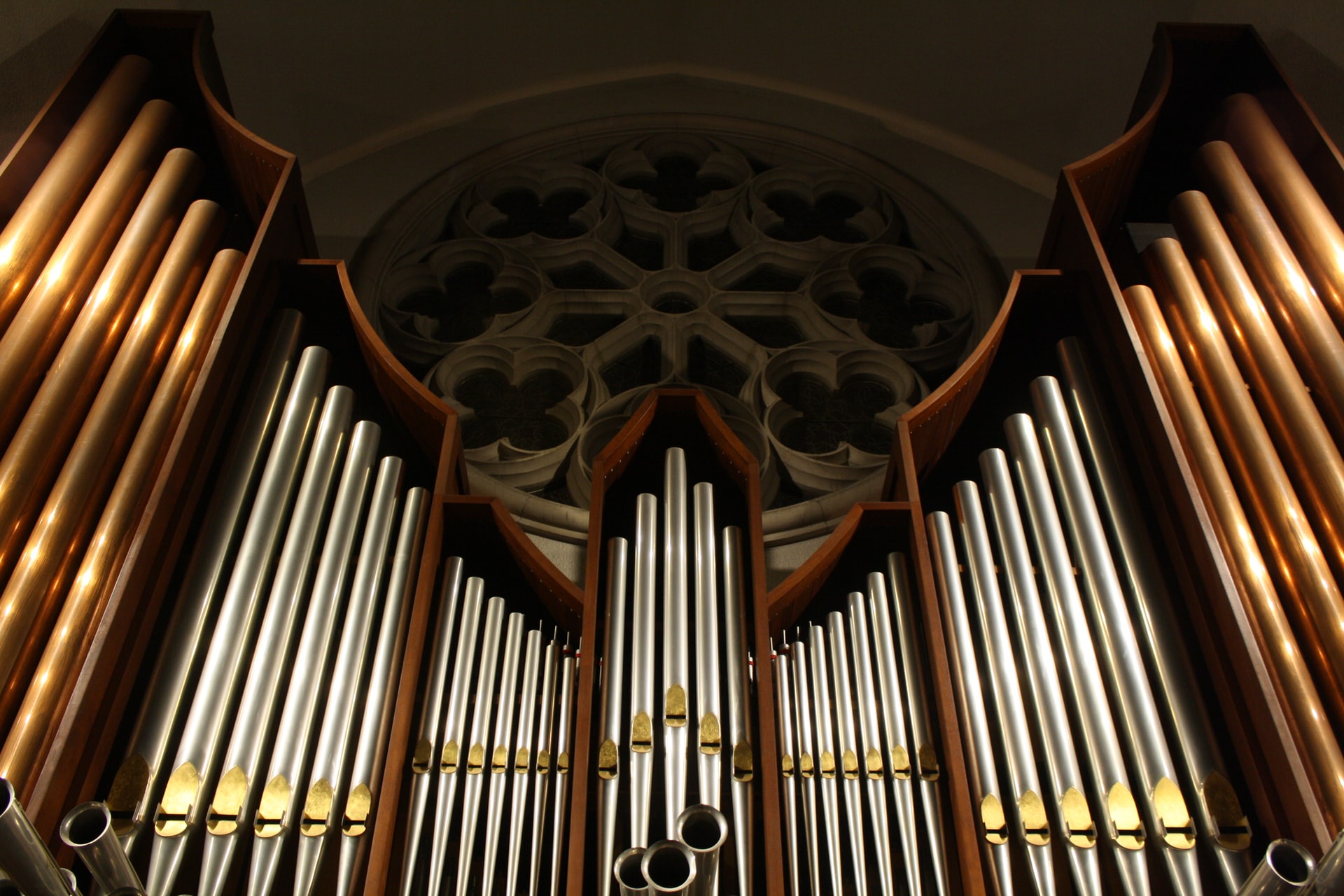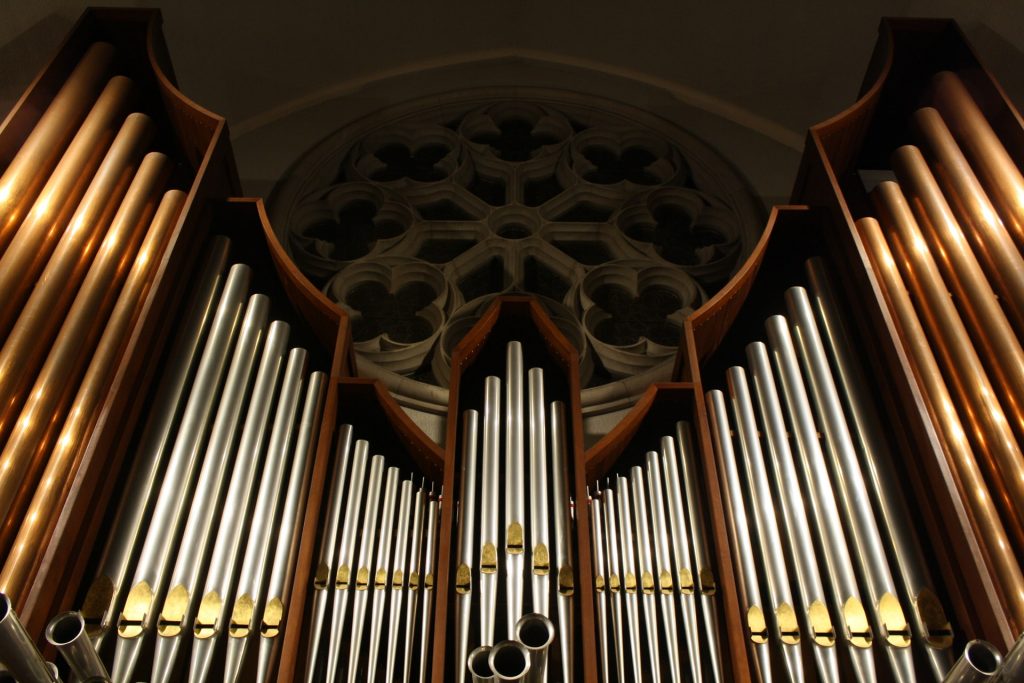

By Sr Helen Jamieson CSC.
Everyone and everything in our universe is unique, which suggests to me that everyone and everything has a relationship with God which is both similar and different. We are all embodied in our Creator’s one overwhelming love, while also being individuals with our own special experience of prayer or relationship with God.
Relating with God can be explained by using the image of a pipe organ. An organ has many pipes. None are the same and each makes a different sound when air passes through it. We, also, are different from one another, and when God’s life moves in and through us we each have something unique to offer to others of God’s love. As Christians, members of Christ’s body, this variety is important for our work of helping to spread God’s kingdom in the world.
John Vianney, (a French priest who lived in the 18th and 19th centuries) wrote in his Catechism on Prayer: “Prayer is a foretaste of Heaven, an overflow of paradise. It never leaves us without sweetness. It is like honey descending into the soul and sweetening everything. Troubles melt away before a fervent prayer like snow before the sun.”
This may have been true for John Vianney, but what of our prayer? Perhaps we pray for something, but it does not happen. “Where is God?” we ask. Our prayer may feel empty, painful, boring and a waste of time. On the other hand, prayer can also be a time of deep peace, resting in God’s presence and love. Regardless of how we experience prayer, our faith can help us to hold on to the unchanging truth of God’s continual love for us.
At present, when we are faced with the restrictions of yet another lockdown resulting from COVID-19 and its variants, it is easy to slip into depression. Depression can cause us to think that God has left us, and even to question God’s existence. At these times we may be comforted by remembering that Jesus also experienced a feeling of being deserted. On the cross, Jesus cried out, “My God, my God, why have you forsaken me?” (Mark 15.34). Later, before Jesus died, he was able to say, “Father, into your hands I commit my spirit” (Luke 23.46). These are words of faith, trust and oneness.
God, who loves us so much, does not withdraw from us when we are in trouble, any more than God turned away from Jesus dying on the cross. At our lowest moments Christ is closest to us, sharing our suffering. We experience something similar when a person we love is in grief or distress. We want to comfort them, share their pain and support them – not abandon them. Prayer at these times is not felt by us as ‘sweetness’, but rather as anguish.
We may pray for people or situations by asking God to intervene in a particular way. Alternatively, we may place people or situations in God’s care, praying for God’s will to be done, and trusting God to work in a way that is best for all. Both these ways of prayer may ask for some action by us.
Whether we pray formally with others or alone, sometimes our prayer can seem boring. When we recite the Lord’s Prayer, for example, it may become just words, which we say while our mind is busy elsewhere. At a Sunday Service, perhaps during Holy Communion, we receive Christ’s life under the outward forms of bread and wine. Such a service can feed and nourish us spiritually, and bind us to others present, yet it does not always feel like that. Afterwards we may not even remember the sermon! However, when we say the words of traditional prayers, in a sense we join with other Christians, who have used or are using the same or similar prayers, to extend God’s rule in our world.
There is also another way of praying which is sometimes overlooked. It leads us to becoming more aware of our life with God. We choose each day to briefly pause to enjoy sharing moments with God. It might be gazing at the beauty of an amazing sunset, singing a hymn, thanking God for the feel of soft yellow wattle blooms or an old gnarled tree trunk. Perhaps we pray for someone who passes us on the street, or thank God for the help we have just received from a friend or stranger. Whenever we hear or read about current disasters in our world, we bring the situation and all involved before God to be loved and healed in God’s way. On waking in the morning, we can ask God for guidance during the day. At the end of the day we may take time to review with God what has happened for us—to say sorry for hurting or failing another, to discuss how and why we said or acted as we did, and to be open to listen to God speaking to us through it all.
If we return to the image of an organ, air directed by the organist moves through particular pipes producing beautiful music for all. When we pray, we enter into the unique relationship with God for which we are each created. Linked with one another by the breath of the Spirit, I suggest that in prayer, as the body of Christ, we present our love and life to be received and used by God for others.
Some people may never be aware of the beauty and wonder of prayer, but it does not make their relationship with God any better or worse. God loves us as we are, relates with us as we are, and cares for us as we are. Through our prayer, alone and with others, God’s love for all creation, human and non-human, can be revealed in God’s world. For us, our prayer will be both pain and joy.